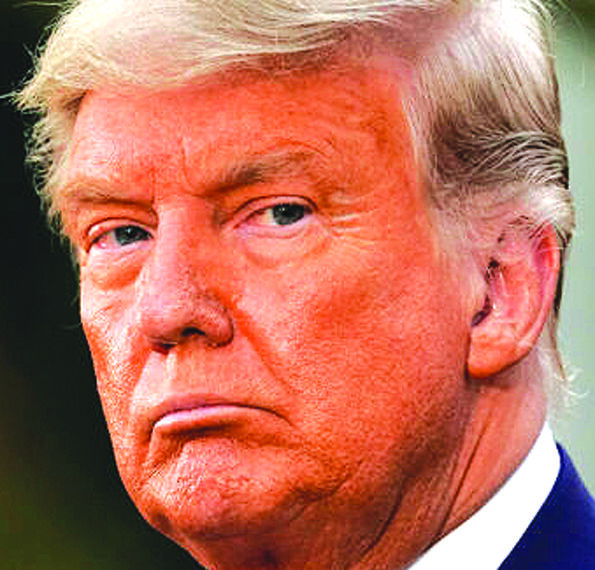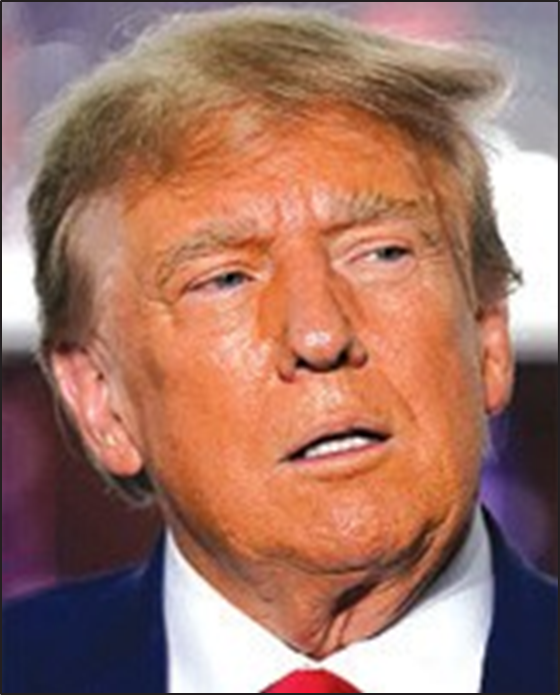November 29, 2024
by Warren L. Nelson Analysts are busy writing reams about what Donald Trump will do about Iran when he becomes president in January, although Trump has said little about his Iran policy and what he has said is sometimes contradictory.
The Islamic Republic seems confused and uncertain as to what policy to adopt toward the United States although the reality is that it will primarily have to react to whatever Trump adopts as his Iran policy in the new year. If Trump does what a new administration routinely does and that is no certainty given Trump’s unusual administrative style he will hold a review of Iran issues, giving his new cabinet officers and other staff the opportunity to weigh in, which might turn Trump in an entirely new direction.
During the campaign, Trump made clear that he does not want a war with Iran. That is consistent. He recognized eight years ago that Americans were fed up with perpetual war in the Middle East and has always taken a stand against “endless war.” Yes, he approved the very dramatic assassination of Maj. Gen. Qasem Soleymani in 2020, an act of war. But in 2019, when, according to his then-national security adviser, John Bolton, his staff meeting in the situation room was “unanimous” in recommending a military air attack inside Iran to respond to the shootdown of a US spy drone, Trump at first approved that action, but hours later, as it was about to be launched, ordered it canceled.
When an Iranian plot to assassinate him was revealed a few weeks ago, Trump was incensed and hurled invective at the Islamic Republic. But he later said he did not wish Iran ill and had but a solitary demand that it never get nuclear weapons. That one demand ignores such other issues as: 1) Iran’s drones and missiles, which have recently been used against Israel, and which the Arab states fear as well; 2) Iran’s military support for Hezbollah, Hamas, several Iraqi militias and the Houthis in Yemen; 3) the regime’s domestic programs of repression; and 4) the regime’s ultimate goal of lording it over the world’s Muslims. Trump’s nominee for secretary of state, Sen. Marco Rubio of Florida, should have the greatest input in decision-making on Iran But just before his nomination was announced and after he knew he would be nominated, Rubio was asked for his views on Iran by The Washington Post.
He responded that his own views on Iran and other foreign policy issues would carry little import and declined to say what he thought Trump should do with regard to TRUMP . . . thinking of Iran Iran. “I want to be supportive of whatever the president’s policies are,” he said. “He’s the one the American people elected with a pretty clear vision about how he envisions the role of the United States in the world.” That is a strange description of the role of a secretary of state, who is supposed to be a president’s principal foreign policy adviser. Many people have said the reports of Iranian efforts to kill Trump have made an impression on him ever since the 2020 assassination of Soleymani.
Many have said the threat scares him. That would logically color how he adopts a policy on Iran. But now The Wall Street Journal has reported that the Islamic Republic sent “written” assurances October 14 to the Biden Administration saying it would not seek to kill Trump. Many find it hard to believe Iran would put any such statement in writing, let alone submit it before the election.
However, the Journal reported that the Iranian pledge was received in response to a letter from the Biden Administration saying any attempt to kill Trump would be treated as an “act of war.” That might have been sufficiently scary to prompt the Islamic Republic to back off plans to kill Trump especially given that its several attempts to kill its enemies in the United States have seen Iran batting zero for 40 years.
The Journal said the letter from Tehran was not signed, which would mean no official in Tehran could get into trouble for sending such a letter. The new Pezeshkian Administration has made clear numerous times that it is not interested in having any confrontation with the United States or anyone else, that it views Iran’s problems as so serious that it cannot afford the distractions of a confrontational foreign policy. Pezeshkian himself frequently makes harsh comments about the United States in a clear effort to appease hardliners.
But while he talks tough and critically, he does not issue threats. Trump’s most recent comment on Iran came the day after the election, when he said, “We’re not looking to do damage to Iran, but they can’t have a nuclear weapon.” That was not something new. He said the same thing at times during the campaign.
So, that was not some offthe-cuff remark and appears as close as one can come with Donald Trump to a policy declaration. At another point, Trump said he “would like to see Iran be very successful.” He has made it clear on many occasions that he does not believe in regime change anywhere in the world. In fact, just a few weeks ago, Brian Hook, who was Trump’s senior full-time staffer on Iran in Trump’s first term, said quite flatly that Trump “has no interest in regime change,” something likely to irritate many IranianAmericans who want to see the Islamic Republic toppled. On the other hand, Trump’s statement of not looking “to do damage” to Iran was contradicted earlier when Trump said in October that President Biden was wrong to tell Israel it should not target Iranian nuclear sites. “When they asked him that question, the answer should have been, ‘Hit the nuclear first and worry about the rest later’,” Trump told reporters.
For what it is worth, when Trump and his senior aides met with Biden at the White House November 13, Biden told Trump that Iran is the most “immediate threat” to US national security. He didn’t say Iran was a bigger threat than Russia or North Korea or China, but said the threat from Iran was the biggest threat right now. Jake Sullivan, Biden’s national security adviser, told reporters after the meeting, “There’s the most immediate issue, which is Iran and its proxy groups continue to take actions that directly threaten Americans and American interests in the Middle East and that has to be dealt with on an urgent basis.” The Arabs of the Persian Gulf seem pleased with Trump’s anti-war stance. They don’t want to see a war with Iran because they fear it will prompt Iran to start firing at them.
But a Western diplomat told The Telegraph of London, “I think what is causing consternation in the Gulf states is that Trump has chosen so many people who seem less America-first than Israel-first.” Trump’s nominee for ambassador to Israel, Mike Huckabee, has even publicly advocated for Israel to annex the West Bank an appalling idea for any Arab leader.
Trump’s new pick for defense secretary, Pete Hegseth, might pose a problem for IranianAmericans as well. Four years ago, Hegseth said, “I don’t care about Iranian cultural sites…. If we’re going to fight to prevent Iran from getting a nuclear bomb, this regime, then we need to rewrite the rules that are advantageous to us.
I don’t want to hit cultural sites on purpose, but if you’re using one to harbor your most dangerous weapons, then that should be on the target list, too.” One problem with this comment is that no one is suggesting that the Islamic Republic is hiding weapons in the Golestan Palace or Naqsh-e Jahan Square. Perhaps the main concern in Tehran is more sanctions, although the US sanctions are so broad already that it is hard to imagine much more sanctions pressure. Trump is seen as a lover of sanctions, but in reality he has grave doubts about them.
In fact, just like the Islamic Republic, he thinks too much reliance on sanctions can prompt nations to turn away from the dollar. It got very little attention, but when Trump spoke to the New York Economic Club in September he warned against a heavy reliance on sanctions.
Here are his exact words: “The problem with what we have with sanctions, and I was using the sanctions, but I put them on and take them off as quickly as possible, because ultimately it kills your dollar and it kills everything the dollar represents. And we have to continue to have that be the world currency. I think it’s important. I think we’d be losing a war. “If we lost and we lost the dollar as much of the world currency, I think that would be the equivalent of losing a war.
That would make us a third-world country. We can’t let it happen. “So, I use sanctions very powerfully against countries that deserve it. And then I take them off because, look, you’re losing Iran. You’re losing Russia. China is out there trying to get their currency to be the dominant currency, as you know better than anybody. “All of these things are happening. You’re losing so many countries because there’s so much conflict with all of these countries that you’re going to lose that, and we can’t lose that. “So, I want to use sanctions as little as possible.”
That shows a different Trump than what the world saw in his first term. And it suggests the Islamic Republic might actually be able to negotiate with Trump to get sanctions lifted.


